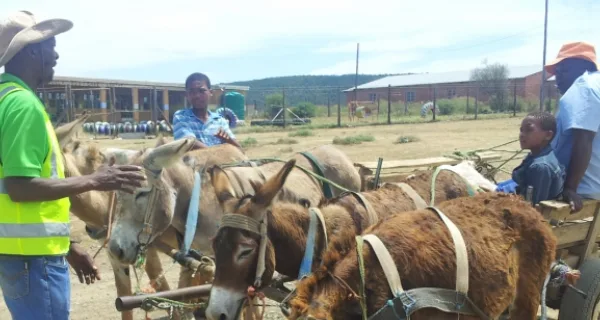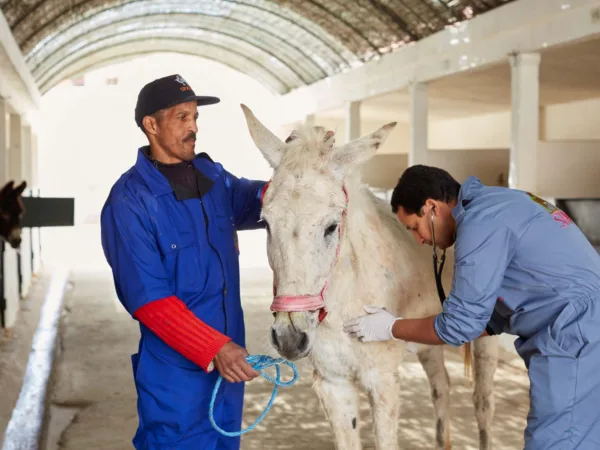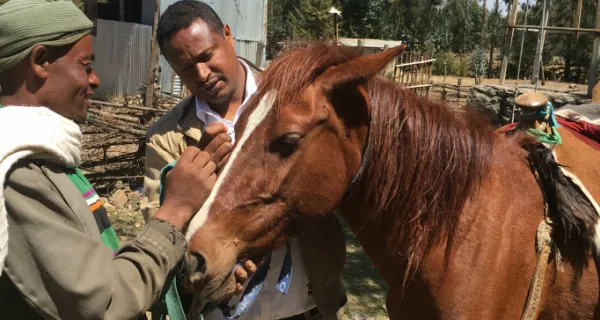Curing colic in horses – Abir’s colic
Abir the horse was brought to our Tunisia centre with a bad case of colic – thankfully SPANA vets were on hand to treat his pain.
Colic is a painful and common problem for horses all over the world which unfortunately can be fatal. When an animal is brought to a SPANA centre with symptoms like excessive rolling, sweating, and weight loss, our vets know that colic might be to blame.
So when owner Gatoussi Mariem brought his nine-year-old cart horse Abir to our Bousalem Centre in Tunisia complaining of his animal’s sudden weight-loss and discomfort, vets suspected that this might be another case of a digestive disorder. Gatoussi makes a modest living selling fruits and vegetables at a local market and depends on Abir to pull a small cart back and forth from his rural village. His livelihood depends on Abir and he wanted to do everything within his power to stop the animal’s suffering.
Colic in horses can be caused by a number of factors but lifestyle and diet often play a big part. Wild horses evolved to graze throughout the day but domesticated horses tend to move less and eat more at set times. This can cause problems when food ferments in a horse’s gut, causing uncomfortable bloating and pressure. Additionally, because horses can’t vomit, toxins and indigestible foods can get stuck in the intestines and absorbed in to the bloodstream. Vets have to act quickly to stop the condition from worsening.
But luckily for Abir and his owner, SPANA vets caught his colic early and the solution to his intense discomfort was simple – general painkillers, anti-spasmodic medicine, and plenty of fluids and paraffin oil. SPANA vets explained how important it is to feed Abir high quality grains and grass and to prevent parasites with medicine. Gatoussi brought his horse home to rest for several days and before long, Abir was free from pain and on the mend.
SPANA has been working and treating animals in Tunisia since 1925, and our three veterinary centres and three mobile clinics treat around 23,000 animals a year. Read more about our work in Tunisia.



